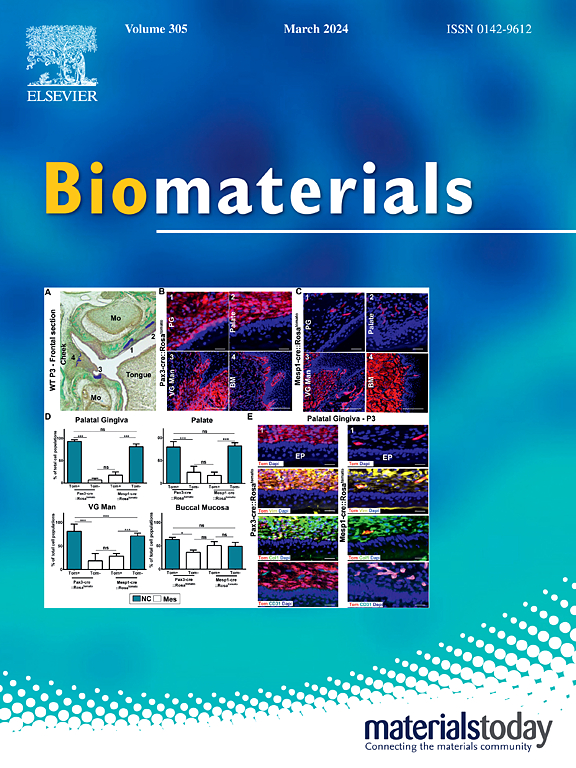Harnessing prazosin for tumors: Liposome hybrid nanovesicles activate tumor immunotherapy via autophagy inhibition
IF 12.8
1区 医学
Q1 ENGINEERING, BIOMEDICAL
引用次数: 0
Abstract
Prazosin (Prz), an antagonist of alpha-1 adrenergic receptors, is conventionally employed in the treatment of hypertension. Our study pioneers the exploration of Prz in oncology, examining its impact on cellular autophagy and its potential to trigger antitumor immune responses. We have developed a novel Prz-loaded liposome hybrid nanovesicle (Prz@LINV) system, integrating tumor-derived nanovesicles (TNV) with liposomes (LIP) to facilitate targeted Prz delivery to tumor sites. This formulation enhances Prz bioavailability and markedly inhibits tumor cell autophagy, leading to immunogenic cell death (ICD) and the activation of antitumor immune responses. Furthermore, Prz@LINV modulates dendritic cells (DCs), augmenting their antigen cross-presentation capacity and thereby potentiating antitumor immunity. These effects were validated in a colorectal cancer mouse model, demonstrating the good biocompatibility of Prz@LINV and its significant inhibition in tumor growth, along with the enhancement of antitumor immune responses. Our findings elucidate a novel mechanism by which Prz inhibits autophagy and enhances the antitumor immune response, providing a foundation for the development of innovative immunotherapeutic strategies. The efficacy of Prz@LINV suggests that Prz may emerge as a pivotal component in future immunotherapeutic regimens, offering patients more potent therapeutic options.
求助全文
约1分钟内获得全文
求助全文
来源期刊

Biomaterials
工程技术-材料科学:生物材料
CiteScore
26.00
自引率
2.90%
发文量
565
审稿时长
46 days
期刊介绍:
Biomaterials is an international journal covering the science and clinical application of biomaterials. A biomaterial is now defined as a substance that has been engineered to take a form which, alone or as part of a complex system, is used to direct, by control of interactions with components of living systems, the course of any therapeutic or diagnostic procedure. It is the aim of the journal to provide a peer-reviewed forum for the publication of original papers and authoritative review and opinion papers dealing with the most important issues facing the use of biomaterials in clinical practice. The scope of the journal covers the wide range of physical, biological and chemical sciences that underpin the design of biomaterials and the clinical disciplines in which they are used. These sciences include polymer synthesis and characterization, drug and gene vector design, the biology of the host response, immunology and toxicology and self assembly at the nanoscale. Clinical applications include the therapies of medical technology and regenerative medicine in all clinical disciplines, and diagnostic systems that reply on innovative contrast and sensing agents. The journal is relevant to areas such as cancer diagnosis and therapy, implantable devices, drug delivery systems, gene vectors, bionanotechnology and tissue engineering.
 求助内容:
求助内容: 应助结果提醒方式:
应助结果提醒方式:


